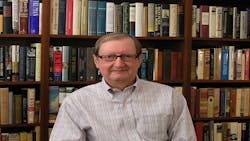On January 21, 2013, on a cold and possibly snowy day in Washington, DC, President Barack Obama will, again, take the oath of office as President of the United States. Months of contentious political debate will cease, and civility will return, not only to the Capital City, but to the rest of the country as well.
Probably not.
Since Colonial times, distinct differences, heated words, and sometimes controversial actions have characterized the American political experiment as people have tried to properly define the extent of individual rights, executive power, legislative authority, judicial reach, social responsibility, and financial discipline. The thirteen original colonies struggled with such issues as taxes, trade, commerce, and rule from abroad.
America’s first attempt at collective governance was found to be inadequate and ineffective, and in February 1787 Congress invited the states to send delegates to Philadelphia in May to revise the Articles of Confederation. The delegates instead wrote a constitution, which was ratified only with the promised addition of a bill of rights.
In the more than two centuries that have followed ratification, citizens and non-citizens of the United States have continued to debate and define the proper role of government, including the definition of citizenship itself.
Although it may still be too close to the federal, state, and local elections of November 6 and the months of messages that preceded them to even want to contemplate more debate and definition, the political reality is that such vital issues as taxes, jobs, education, infrastructure investment, the national debt, and regulation are still with us. Still needing national debate. Still needing national definition. And not just by a re-elected president and a new Congress.
About ten years ago, an Amtrak conductor expressed to me his wish that trains in the Northeast Corridor not have quiet cars—passenger cars in which no cell-phone use was allowed—because people in the quiet cars were so unbelievably rude to him when he asked them to turn off their cell phones.
I shudder at the prospect of a federal, state, or local conductor telling us to turn off the political equivalents of cell phones. We still need debate. We still need definition. But we also need to listen. We all need some quiet time to reflect on what is possible, even if it is not perfect. We could all benefit from some time in a quieter car.
As we recall our history and continue to debate issues great and small, let us proceed with passionate thoughtfulness, with respect, and not with rudeness or hate.
This is one of a series of occasional essays by John S. McClenahen, who retired from IndustryWeek in 2006 and remains a keen observer of the global manufacturing environment.
About the Author
John McClenahen
Former Senior Editor, IndustryWeek
John S. McClenahen, is an occasional essayist on the Web site of IndustryWeek, the executive management publication from which he retired in 2006. He began his journalism career as a broadcast journalist at Westinghouse Broadcasting’s KYW in Cleveland, Ohio. In May 1967, he joined Penton Media Inc. in Cleveland and in September 1967 was transferred to Washington, DC, the base from which for nearly 40 years he wrote primarily about national and international economics and politics, and corporate social responsibility.
McClenahen, a native of Ohio now residing in Maryland, is an award-winning writer and photographer. He is the author of three books of poetry, most recently An Unexpected Poet (2013), and several books of photographs, including Black, White, and Shades of Grey (2014). He also is the author of a children’s book, Henry at His Beach (2014).
His photograph “Provincetown: Fog Rising 2004” was selected for the Smithsonian Institution’s 2011 juried exhibition Artists at Work and displayed in the S. Dillon Ripley Center at the Smithsonian Institution in Washington, D.C., from June until October 2011. Five of his photographs are in the collection of St. Lawrence University and displayed on campus in Canton, New York.
John McClenahen’s essay “Incorporating America: Whitman in Context” was designated one of the five best works published in The Journal of Graduate Liberal Studies during the twelve-year editorship of R. Barry Leavis of Rollins College. John McClenahen’s several journalism prizes include the coveted Jesse H. Neal Award. He also is the author of the commemorative poem “Upon 50 Years,” celebrating the fiftieth anniversary of the founding of Wolfson College Cambridge, and appearing in “The Wolfson Review.”
John McClenahen received a B.A. (English with a minor in government) from St. Lawrence University, an M.A., (English) from Western Reserve University, and a Master of Arts in Liberal Studies from Georgetown University, where he also pursued doctoral studies. At St. Lawrence University, he was elected to academic honor societies in English and government and to Omicron Delta Kappa, the University’s highest undergraduate honor. John McClenahen was a participant in the 32nd Annual Wharton Seminars for Journalists at the Wharton School at the University of Pennsylvania in Philadelphia. During the Easter Term of the 1986 academic year, John McClenahen was the first American to hold a prestigious Press Fellowship at Wolfson College, Cambridge, in the United Kingdom.
John McClenahen has served on the Editorial Board of Confluence: The Journal of Graduate Liberal Studies and was co-founder and first editor of Liberal Studies at Georgetown. He has been a volunteer researcher on the William Steinway Diary Project at the Smithsonian Institution, Washington, D.C., and has been an assistant professorial lecturer at The George Washington University in Washington, D.C.
